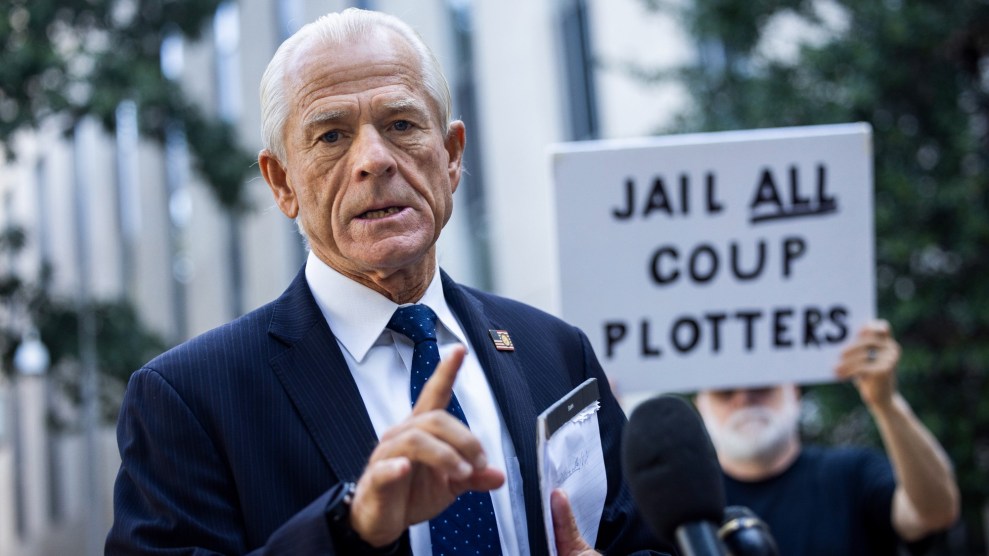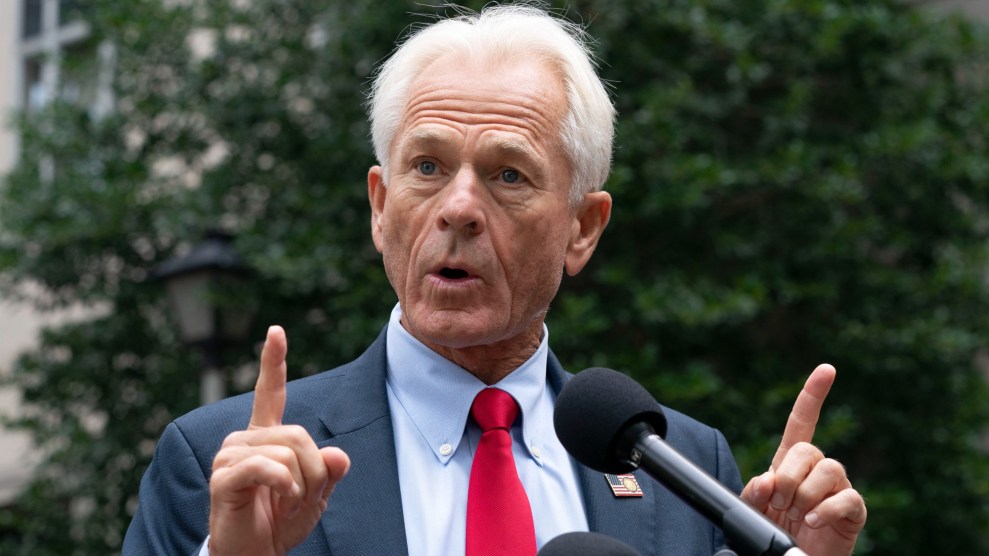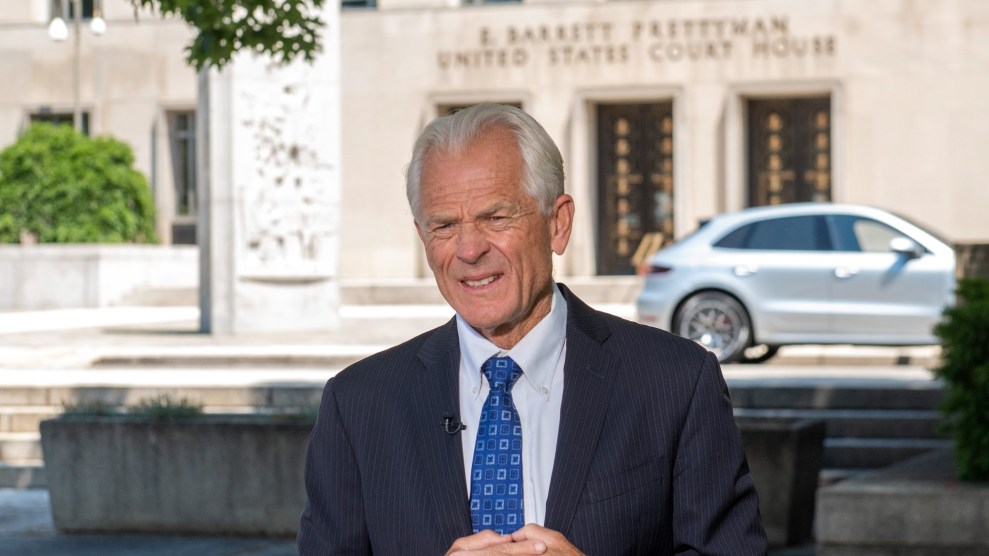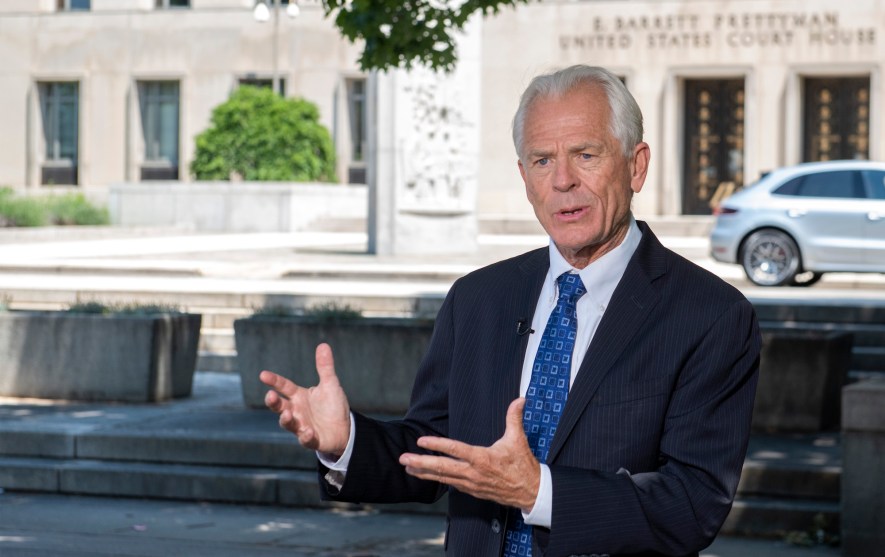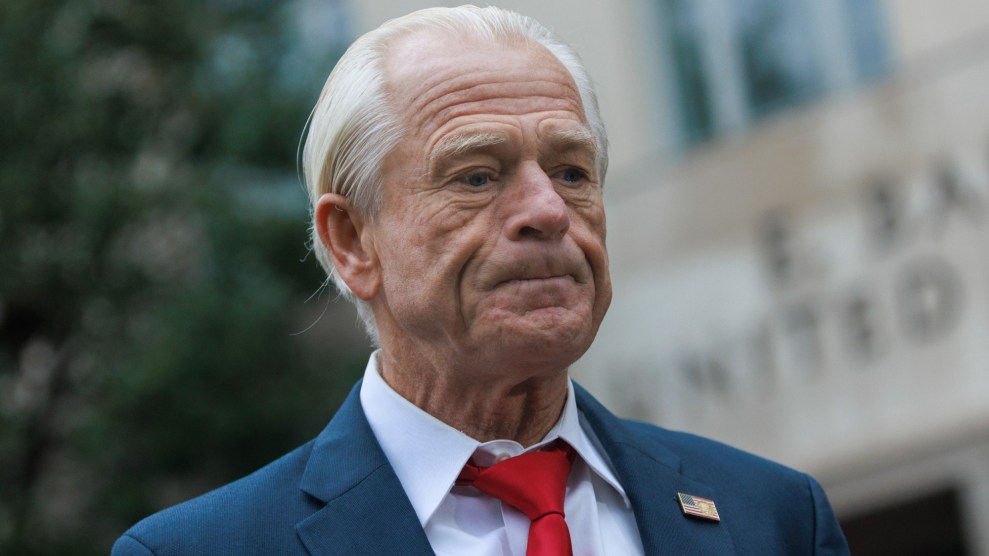
Peter Navarro prior to his sentencing on January 25.Bryan Olin Dozier/Zuma
A federal judge on Thursday sentenced former Donald Trump adviser Peter Navarro to four months in prison for contempt of Congress, while tearing into Navarro’s claims that he was unfairly targeted by the Justice Department.
“Mr. Navarro, you’re not a victim,” US District Court Judge Amit Mehta said. “You’re not the object of a political prosecution.”
“Nancy Pelosi’s not responsible for your prosecution,” Mehta added later, citing Navarro’s public claims, some made in fundraising appeals, that a vast conspiracy is targeting Trump and his allies. “Joe Biden’s not responsible for your prosecution.”
Mehta held off on actually sending Navarro to prison, however, saying he wants to hear first from lawyers on whether he should allow Navarro to remain free pending an appeal. If Mehta does stay the sentence, it will be months, even years, before Navarro has to serve it. That creates a distinct chance that Trump, if he wins in November, could spare his former aide prison with a pardon or commutation. Steve Bannon, who also received a four-month sentence for contempt of Congress in October 2022, remains free pending his appeal, which is currently being considered by DC’s circuit court. Mehta fined Navarro $9,500, a modest sum compared to the legal fees that Navarro, who appeared in court Thursday with four attorneys, has publicly bemoaned.
Navarro, who worked in the Trump White House mostly as a trade adviser, in late 2020 wrote an eponymous report that falsely claimed voter fraud had cost Trump the election. Navarro pushed those claims publicly. But he refused to comply with a February 2022 subpoena from the House January 6 committee. He wrote “executive privilege” in response to a committee aide’s email about the subpoena, then blew off follow-up communications. Navarro later claimed that Trump had instructed him to assert executive privilege, but never documented how. Nor did Trump ever detail giving such instructions. Navarro did not show up for a deposition the panel scheduled.
“The Committee sought documents and testimony from the Defendant pertinent to a matter of national importance—the circumstances that led to the violent attack on the Capitol on January 6, 2021, and the disruption of the peaceful transfer of power,” prosecutors said in a memo seeking a six-month sentence. “But the Defendant, like the rioters at the Capitol, put politics, not country, first, and stonewalled Congress’s investigation. The Defendant chose allegiance to former President Donald Trump over the rule of law even after being apprised that executive privilege would not excuse his default.”
Mehta, like the jury, generally agreed with that argument. Federal judges have repeatedly ruled that witnesses subpoenaed by Congress can argue executive privilege in some instances but that they must appear for a deposition and assert privilege in response to specific questions, not just wave off lawmakers.
The words executive privilege are not “magic dust,” Mehta told Navarro Thursday. “It’s not a get out of jail free card.”
Mehta took particular exception Thursday to arguments by Navarro’s lawyers that Navarro had accepted responsibility for his crime, noting his claims of victimhood evade admitting fault.
“Your obligation as an American is to cooperate with Congress, to provide them with the information they were seeking,” Mehta added. “They have a job to do, and you made it harder. It’s really that simple. It wasn’t a kangaroo court. The public could see that.”
“I haven’t heard a word of contrition from Dr. Navarro since this case began,” the judge said.

